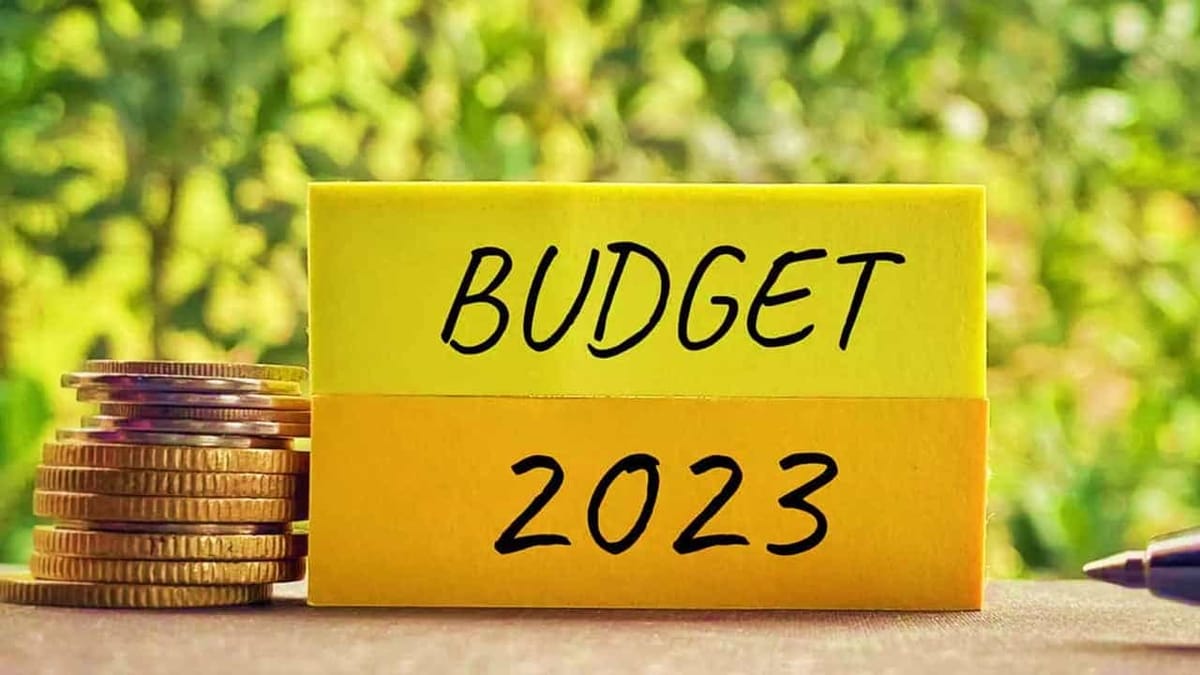Vidushi | Jan 31, 2023 |

BUDGET 2023: Top 10 Expected Changes in Personal Tax; Know What are they?
The Union Finance Minister Nirmala Sitharaman will present the Budget 2023-24 on 1st February 2023.
The Union Budget 2023 is expected to be populous as this will be the last budget of Current dominating government before the election, giving some benefits to farmers, boosting agricultural operations, and providing benefits to the rural masses. Finance Minister will continue to prioritize fiscal consolidation, domestic manufacturing, infrastructure spending, and job creation.
This Budget 2023 is anticipated to pursue a balanced approach to fiscal consolidation and economic growth by increasing financing for capital expenditures and rural areas while adhering to restrictions on managing the fiscal deficit. The country expects the Finance Minister to generally achieve a fiscal deficit for FY24 of less than 6% with a nominal GDP growth of 12-14%.
Here we will give you a snippet of some of the changes that may be expected from this Upcoming Budget 2023:
Expected Major Changes in the Personal Tax
In India, where there are more than 80 million taxpayers, salaried workers make up the majority of tax payers. The following are the expectations on the personal tax space from the FM
In cities with varying densities of population, the taxable value of residential property owned by a business and made available to its employees is deducted at a rate of 15%, 10%, or 7.5% of “Salary.” The perquisite value will therefore rise in line with every pay increase for the same employee lodging in the same place controlled by the company. Employees find this to be a demotivating factor, so it is recommended that in the case of company-owned housing, the concept of fair value be introduced for the purpose of determining perquisite value. In this way, it will be possible to ensure that the employee is taxed on the appropriate value of this perquisite. Rent in the area in question that is comparable should be used to define fair value.
To boost the travel and tourism industry, tax relief may be given yearly and should apply to both domestic and international trips. In addition to travel expenses, tax relief should be expanded to include lodging costs as well.
Since the last 21 years, the exemption limit for payment of leave encashment under Section 10(10AA) of the Act has only been Rs 3 lakh; this amount needs to be raised with immediate effect.
At present the voluntary contribution of Rs 50,000 is allowed as a deduction u/s 80CCD (1B) of the Act. It should be raised to at least Rs 1 lakh.
The Finance Act 2020 eliminated the Dividend Distribution Tax (DDT), therefore dividends are now taxed in the hands of shareholders at the appropriate slab rate. As a result, while the dividend tax is only 28.5% for non-residents, it might increase to 43% for locals. Like NRIs, dividends may now be taxed at a lower rate for residents as well.
When compared to other nations, India’s high personal tax rate for individuals stands out as being extraordinarily high rate. The maximum personal income rates, for instance, are 15% in Hong Kong, 18% in Sri Lanka, 25% in Bangladesh, and 22% in Singapore. The middle class and those who make a living from wages suffer the most from high income taxes.
Additionally, the greatest marginal rate for individuals has increased to about 43%. (highest slab). Compared to corporations, where it is approximately 29% Equity demands that there should be at least some level of parity. In light of this budget, the finance minister might:
The majority of taxpayers have not embraced the new tax system, despite its debut, because it is less practical than the old one. The highest income tax bracket, which starts at Rs. 10 lakh and is subject to a 30% tax, may also be increased to at least Rs. 15 lakh under the new “hybrid system” that combines the existing and new schemes.
In addition, the Finance (No. 2) Act of 2014 set a maximum annual limit for deductions under Section 80C of the Act at Rs. 1.5 lakh. Even with a 6% annual inflation rate, the deduction must rise to at least Rs 2.5 lakh. These benefits would encourage investments and savings as well.
The next major demand from consumers is an increase in the medical and health insurance u/s 80D rebate due to rising healthcare expenses and inflation worries that are having an impact on household incomes. It is anticipated that the limit will rise by at least 50%.
The housing loan interest deduction cap is around Rs.2 lakh. It is anticipated that the limit should be raised to at least Rs 3 lakh in response to the increase in interest rates.
In case of any Doubt regarding Membership you can mail us at contact@studycafe.in
Join Studycafe's WhatsApp Group or Telegram Channel for Latest Updates on Government Job, Sarkari Naukri, Private Jobs, Income Tax, GST, Companies Act, Judgements and CA, CS, ICWA, and MUCH MORE!"